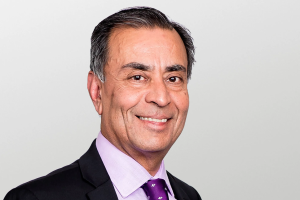Accountancy sector ‘on verge of tectonic shift’

Consolidation and Big 4 restructuring are clear signs of a shifting landscape, says James Dow of Dow Schofield Watts
The news of more restructurings and potential job losses in the big four are clear signs that, beneath the orderly surface of the accountancy sector, the tectonic plates are beginning to shift.
The latest shake-out of M&A professionals is one in a long line of initiatives by top-tier firms, following divestment of their insolvency and pension advisory services in recent years, as they seek to respond to regulatory pressures.
At the same time, in the mid-market there is a huge wave of consolidation now taking place, as private-equity backed vehicles buy up smaller firms, driven by the inevitability that AI is about to transform how traditional accounting services are delivered. With significant plates of change at both ends of the market, it is time for professionals and clients alike to reassess their options.
The fact is that while technology has disrupted many other industries, until now accountancy has clung on to its traditional business models. The big four have continued to dominate the sector and attract the cream of the talent.
They are often seen as the route to career success by ambitious young professionals, though once there, many feel they have become trapped on a treadmill with little autonomy.
Meanwhile smaller accountancy firms can provide a better work-life balance but also lower pay and less opportunity for those with specialist skills.
Arguably this polarisation has restricted career choices for candidates and advisory options for clients too. However, while alternative business models have caught on in the legal sector, which now has numerous ‘fee-sharing’ or ‘consultancy’ models, accountants have played safe and stuck to the traditional options.
The signs are that this is beginning to change. A survey of over 3,000 accountancy professionals by MDM Consultants found that 68 per cent rated their work-life balance as poor, 57 per cent were unhappy with their current working model and 86 per cent said they were open to new opportunities in 2024.
This aligns with our experience at DSW. As a ‘challenger’ firm offering a unique licensing model, we have seen a major shift in attitudes over the past year, with candidates far more willing to consider different options.
As a result our business has seen a step-change in its growth, with a 21 per cent increase in Partner numbers over the past year, and the addition of corporate finance teams in the Midlands and Wales, a Midlands-based insolvency business and a tax advisory practice in Lancashire.
So what is driving this change? It could be in part that the push factors of redundancies or reduction in partner opportunities at big four firms are encouraging professionals to seek opportunities elsewhere. Or that candidates appreciate the growing strength and track record of mid-market firms like DSW.
However, the needs of professionals are also changing. The pandemic brought about a shift in mindset, with many seeking greater autonomy and flexibility. Women now account for almost half of the workforce but many have struggled in the past with the lack of work-life balance and the male-oriented culture. Recruiters also report that candidates are becoming more entrepreneurial, while younger workers are more values-based.
The continued shake-up in the sector could encourage the creation of more start-ups, larger specialist firms and more new business models. While there will always be a place for the big four, the landscape could soon look very different. The result will be a more vibrant marketplace with more diversity and greater choice for professionals and clients alike.







